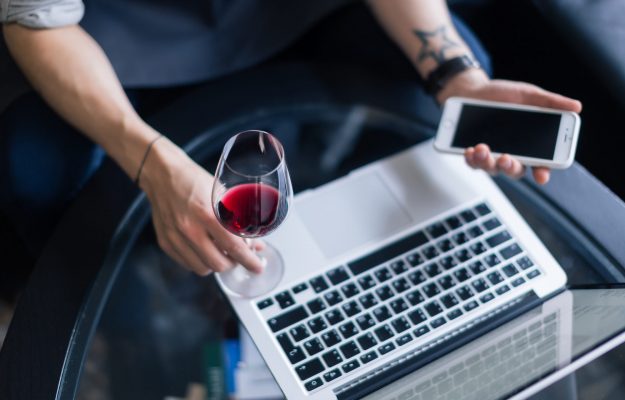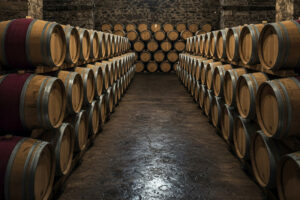Selling wine and spirits online is still generally painstaking and, though sales are constantly growing, they still do not have the weight other categories do, above all, fashion. Yet, as Mark Meek, CEO of IWSR said at the conference “E-commerce: what does it take to sell wine online?” held yesterday at Vinexpo in Bordeaux, together with Mike Hu (Tmall - Alibaba), Chris Tsakalakis (CEO of Vivino), Marco Magnocavallo (Tannico) and Martin Ohannessian (Le Petit Ballon), “there are more reactive markets, though for different reasons, where the habit of buying wine for dinner is also growing online. In China, as well as in Great Britain, the habit of buying bottles through e-commerce at least once a month has reached more than 50%, while 11% of the Chinese choose online purchases more than once a week, a percentage and a frequency matched only in Japan; however, in none of the two wine is the most sold alcoholic beverage”.
Furthermore, the dynamics on the web are different from those to which we are accustomed, so, for example, “the results”, continued Mark Meek, “are rather reduced for big brands in the e-commerce channel, and instead small producers affirm themselves on Amazon, too. Moreover, the driving force for sparkling wines is Champagne, while Prosecco fails to repeat the success it has achieved on the offline channel. And furthermore, online loyalty tends more toward the platform used than towards the product, while the three factors that determine purchases are convenience, price and immediate availability”.
Another speaker at the conference was Chris Tsakalakis, CEO of Vivino, an app that has more than 30 million users worldwide and that has focused on online sales for a long time. “The strength of a marketplace (i.e., an internet site of brokerage for sale, like Amazon and Alibaba, ed.) like ours is to put together the needs of suppliers and buyers and have them meet. It is not difficult to convince companies to work with us; in the end we do nothing but add a commission to the selling price. The question, asked Tsakalakis instead, is: do I as a producer want to compete with retail sales?
“As far as the dynamics that drive online purchases are concerned, the judgment of the CEO of Vivino is quite cutting: “the label is irrelevant, the private label too, and the territory of origin counts very little. What weighs, in the end, are scores and price, as well as personal taste, which often changes according to trends of the moment. Big data is fundamental for us, since we have 800 million scans that give a pretty good idea of what people drink, and we need them especially for customizing the offer, through the “matching taste profile”. For instance, if you have drunk Cabernet Sauvignon, and you liked it, we will recommend another Cabernet Sauvignon, perhaps at better prices”, concluded the CEO of Vivino.
The story of Marco Magnocavallo, founder of Tannico, is different. Today, in addition to selling in Italy, he ships to 20 different countries, and however still falls into the category of wine specific marketplaces. A real and true online store, which “in the management of wine, from the its conservation to shipment”, explained Magnocavallo, “is one of its strengths. The other is big data, analyzed by Tannico Intelligence, which we do not use so much for commercial purposes as for putting them at the service, free of charge, of companies, so as to strengthen the bond between us and our customers, who always have the freedom to decide which wines to sell and at what prices, on which we add the price of our service. In recent years we have sought out agreements with players from other countries, but have never found them; in this sense, the sector is very competitive and hard, making it difficult to find a solution”.
Copyright © 2000/2026
Contatti: info@winenews.it
Seguici anche su Twitter: @WineNewsIt
Seguici anche su Facebook: @winenewsit
Questo articolo è tratto dall'archivio di WineNews - Tutti i diritti riservati - Copyright © 2000/2026







































































































































































































